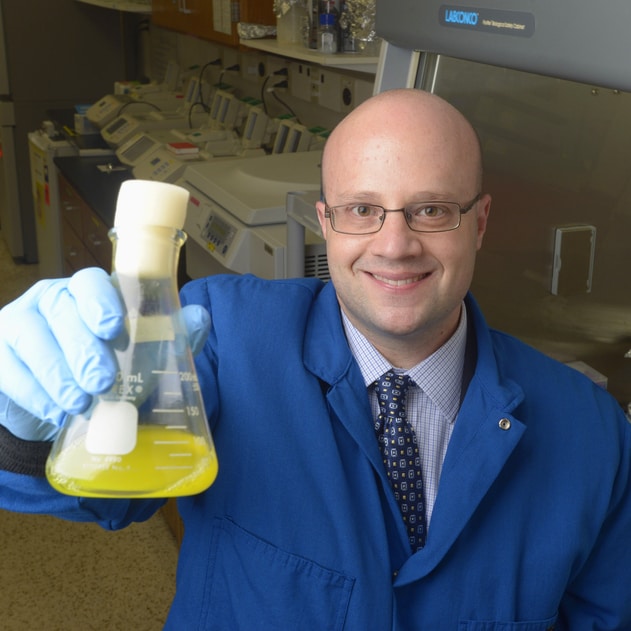
Dr. Hal-Alper
ENGINEERING AN EXPANDED CHEMICAL PALETTE IN CELLS
Abstract:
An industrial biotechnology revolution is approaching. Recent technical advances are leading to a rapid transformation of the chemical palette available in cells making it conceivable to produce nearly any organic molecule of interest—from biofuels to biopolymers to pharmaceuticals. However, these feats require the ability to “hijack” native cellular machinery and metabolism and navigate the complexity inherent in cellular regulation. In this vain, this talk will describe recent advances in engineering various yeasts for the production of important products, such as organic acids and oleochemicals, with a focus on the synthetic biology tools and directed paradigms required along the way. Collectively, these case studies demonstrate the power and utility of using yeasts as a production host for chemicals.
Biography:
Dr Hal Alper is a Professor of Chemical Engineering at The University of Texas at Austin. He earned his Ph.D. in Chemical Engineering from the Massachusetts Institute of Technology in 2006 and was a postdoctoral research associate at the Whitehead Institute for Biomedical Research from 2006-2008, and at Shire Human Genetic Therapies from 2007-2008. He is currently the Principal Investigator of the Laboratory for Cellular and Metabolic Engineering at The University of Texas at Austin where his lab focuses on metabolic and cellular engineering in the context of biofuel, biochemical and biopharmaceutical production in an array of model host organisms. Dr. Alper has published over 75 articles and 8 book chapters and is the recipient of awards including the 2013 Biotechnology and Bioengineering Daniel I.C. Wang Award, the Jay Bailey Young Investigator Award in Metabolic Engineering in 2014, the 2014 Camille Dreyfus Teacher-Scholar Award, and 2016 ACS BIOT Young Investigator Award.



